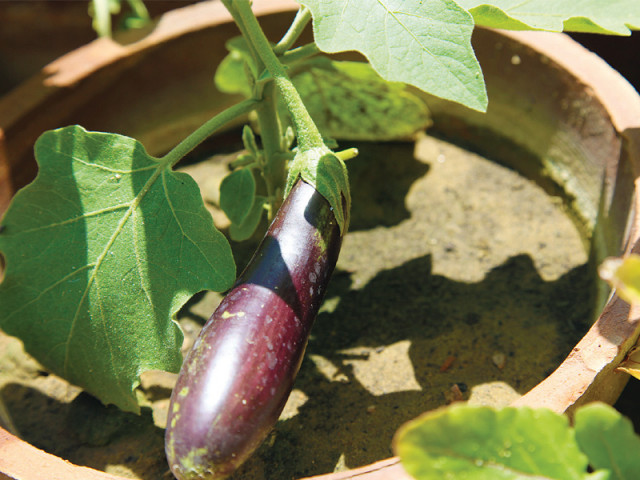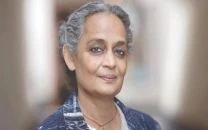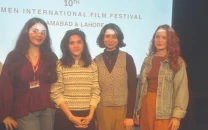Getting down and dirty
When was the last time you got down and dirty, and soothed your mind with a hoe?

If you haven’t yet perhaps now is a now good time to get close to nature, literally. Organic farming is picking up credence and interest among the young and the old in Pakistan. In layman’s terms organic farming is simply growing plants without the support of pesticides and chemicals, like we used to 50 years ago.
Environmentalist Tofiq Pasha Mooraj explains the importance and process of this age old gardening and farming technique.
A process known as “nitrogen fixation” plays a key role in ensuring the soil is rich enough to sufficiently provide the plant all the minerals aka food it requires. The nitrogen fix can be achieved by mixing gobar khad (cow dung), poultry dropping and also a green option known as ‘jantar’ (fodder crop.)
Enriching the soil wins more than half the battle for the farmer. All the farmer must worry about next is keeping a close eye on the plant to ensure it does not get infected by removing unwanted weeds and immediately removing any damaged leaves and stems before it spreads.
Of course plants today are much more susceptible to pesticides as their strain gets potent each year round. But pumping crops with chemicals can both be hazardous to health and is not the only solution for farmers, even those who only plant in their backyards.
Wanting a purely “for fun and learning experience” for its students, Dawood Public School (DPS) in Karachi began gardening as an extracurricular activity nearly two years ago. Aiming to get the children away from their television sets and gaming consoles, gardening at DPS is not limited to planting and growing fruits and vegetables but learning about their nutritional value as well.
However, the initiative was met with a great deal of resistance on its onset. “Initially parents were very sceptical and resistant regarding the need for the activity, while some even saw it as a waste of time. So starting such a project was risky,” says gardening teacher at DPS Sadia Siddiqui. Another point of contention was the one-time cost of the pot. “While the school provided the soil and seeds each child needed to buy their own pot, which costs approximately Rs25,” she explains.
Some students also joined the resistance and were unwilling to “touch the soil and get their hands dirty.” There was a lot of yuck and bluck, she sighed.
But according to Siddiqui, the one-time cost of the pot and the students dislike for soil was overcome and this year the teacher is ripe with stories of how her students have started planting at home. “Many children have also made this a regular feature with their grandparents,” she says, brimming with excitement.
A student of Grade VIII Areeba Tariq says she feels “extremely close to nature while gardening.” With a small garden at home now Areeba says the activity gives her peace while relaxing her mind from the “stresses of being a 14-year-old,” she says dramatically. In her garden at home, which she jointly looks after with her siblings and cousins, Areeba has planted ferns, roses, tomatoes and chillies. She talks of her achievements proudly, not forgetting to mention how she commands her siblings on how to properly garden since her school is the only one with the subject.
Gardening classes at DPS are divided into two groups. The primary group is from Grade I to V and the secondary group from Grade VI to VIII. Each group gardens two weeks out of the month alternating with two weeks in the food and nutrition laboratory.
As this is 13-year-old Sama Fatima’s last year of gardening as an activity in school she promises to keep her efforts up with her “mini farm” at home. “I really did not care much for gardening before but over time I developed a very keen interest in it,” she says. Now Sama can only hold back for so long before she needs to have her fingers running through the soil and plants her next batch of fruits, flowers and vegetables. “Before, my father would ask me why I spent so much time gardening and said perhaps I could better utilise my energy elsewhere. Now when he sees the calming and responsible effect it has had on me he started encouraging it. So far I have planted tomatoes, roses, sunflowers, custard apple and mangoes,” she proudly says.
Published in The Express Tribune, Sunday Magazine, March 27th, 2011.



















COMMENTS (10)
Comments are moderated and generally will be posted if they are on-topic and not abusive.
For more information, please see our Comments FAQ